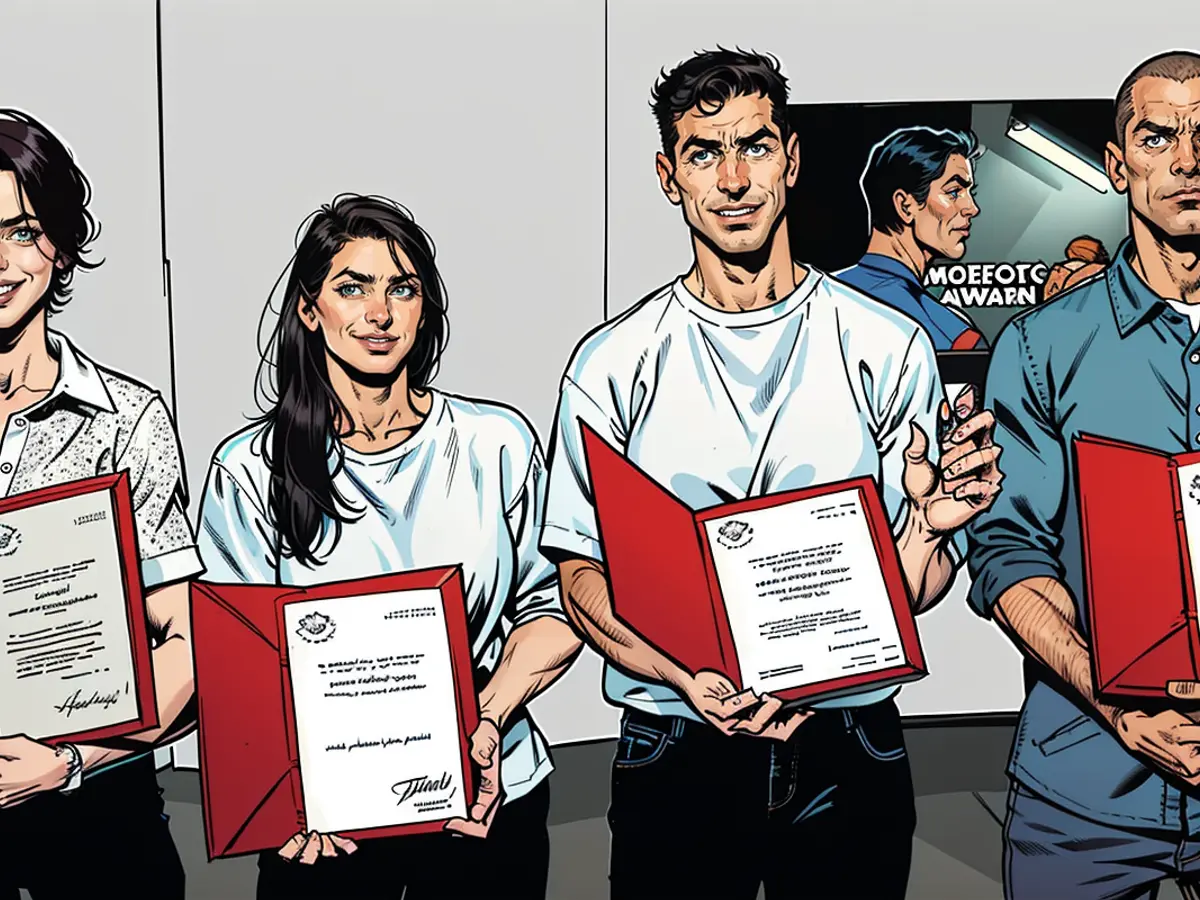Tijan Silva wins Bachmann Prize
The mother becomes schizophrenic, the other develops a Vermüllungssyndrom: The author Sila came to Germany as a refugee in 1994. Excerpts from an upcoming novel earn him the renowned Bachmann Prize. This year's competition was marked by familial wounds.
Familial wounds that do not heal over generations have been a thematic focus for the annual competition for the prestigious Ingeborg Bachmann Prize. The author Tijan Sila, born in Sarajevo and living in Kaiserslautern, made it through the jury's deliberation in a broad field of favorites in Klagenfurt, Austria. For his text "The Day My Mother Went Insane," he received the main prize. The award, sponsored by the city of Klagenfurt, is worth 25,000 Euro and named after the local writer Ingeborg Bachmann (1926-1973).
Sila's 1981-born narrator not only tells of a mother who suddenly becomes schizophrenic but also of a father who slides into a pathological Vermüllungssyndrom. The horrors of the Bosnian War are described in parts as shocking, in parts comically - for instance, with an aunt killed by a grenade while nursing her newborn baby, or with the destroyed office of the mother, which looks "like a microwave where a spoonful of moussaka had exploded."
Juror Philipp Tingler spoke of Sila's unique linguistic "mixture of precision, tragicomedy, and melancholy" in his acceptance speech, as well as the narrative structure, which does not end in despair but with a rebellion against the passing of parents' pain to children. Sila was speechless after receiving the award.
Sila came to Germany as a refugee in 1994. He studied Germanistics and English in Heidelberg. Today, he not only writes but also teaches as a teacher in a school. His latest book "Radio Sarajevo" about surviving in the besieged city was published last year; his Bachmann text is part of his next novel.
"A pause is needed after the Gurkerlwahnsinn"
Other trauma narratives were also in contention. The Slovenian Tamara Stajner won the 10,000 Euro Kelag Prize for "Luft nach unten" (Air Below), a text addressed to a loving, violent, and sick mother that moved Stajner to the brink of tears during her reading.
The Bonn author and forklift driver Denis Pfabe described a man trying to come to terms with overwhelming orders at a garden center in "Die Möglichkeit einer Ordnung" (The Possibility of Order). For this, he received the Deutschlandfunk Prize, worth 12,500 Euro.
Henrik Szantos' artful language kaleidoscope "Eine Treppe aus Papier" (A Staircase of Paper), in which the dead and living inhabitants of a house are mixed up - from the Nazi era to the present, remained unacknowledged. Similarly, Miedya Mahmod's even more radical text "Es schlechter ausdrücken wollen. Oder: Ba,Da" (We Don't Want to Express It Badly. Or: Ba,Da), in which war, injuries, and family play a role, came away empty-handed. Despite the heavy themes, all these excellent and not-so-excellent texts showed a determination to overcome historical and historical traumas.
A candidate instead opted for relieving laughter instead of shock and was rewarded with the audience prize and the 3sat prize: Johanna Sebauer convinced in Klagenfurt with her satire "The Gurkerl", in which a spritzer of pickled gherkins in the eye of a journalist sets off a media and societal escalation spiral about sauerkraut geese as a topic. The Austrian-born and Hamburg-residing author joked that gherkins were no longer on her menu for the time being. "It could be that I need a break after this gherkin madness", she said.
Sila's upcoming novel, which has garnered him the renowned Bachmann Prize, delves into the complexities of family life and mental health, incorporating themes from both Literature and Entertainment. The narrative structure of his work, with its mix of precision, tragicomedy, and melancholy, sets it apart.
After winning the Bachmann Prize for his novel, Sila continues his literary career, also teaching German and English in a school and publishing works like "Radio Sarajevo" and "The Day My Mother Went Insane," which blend elements of Literature and Entertainment.








